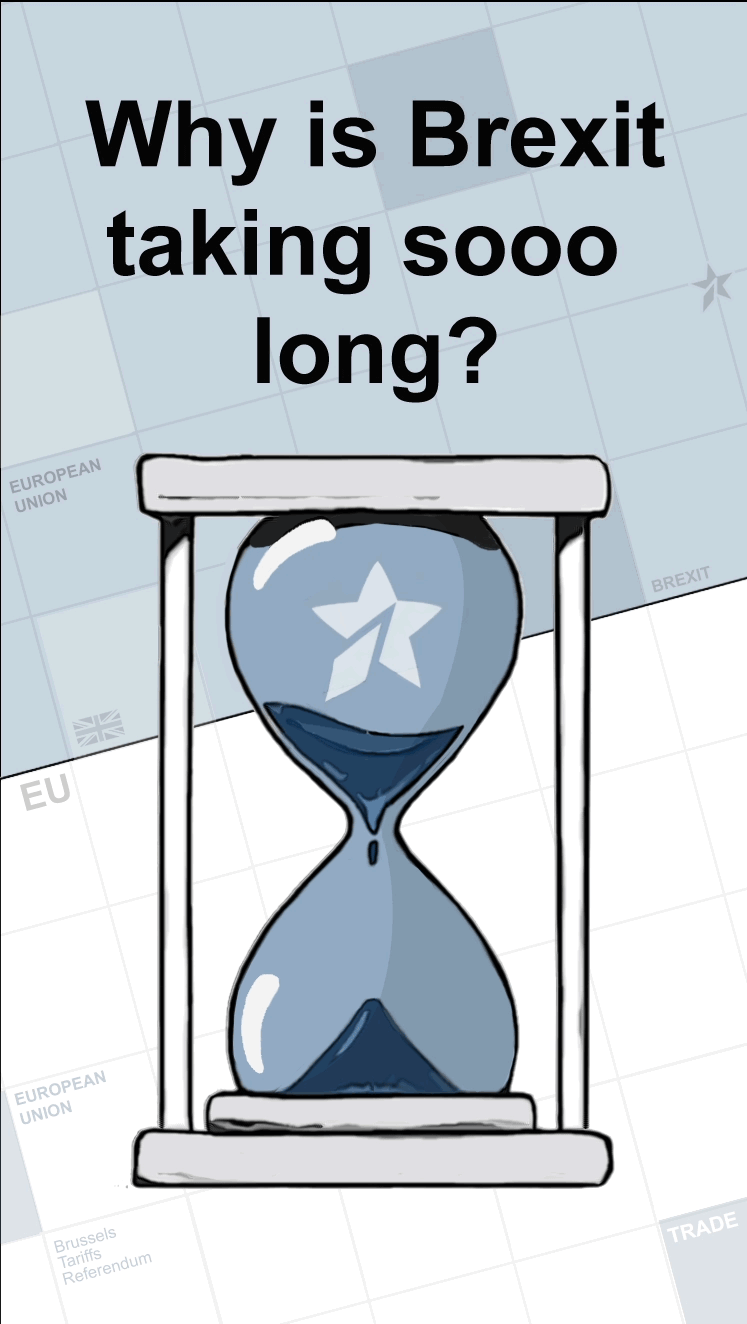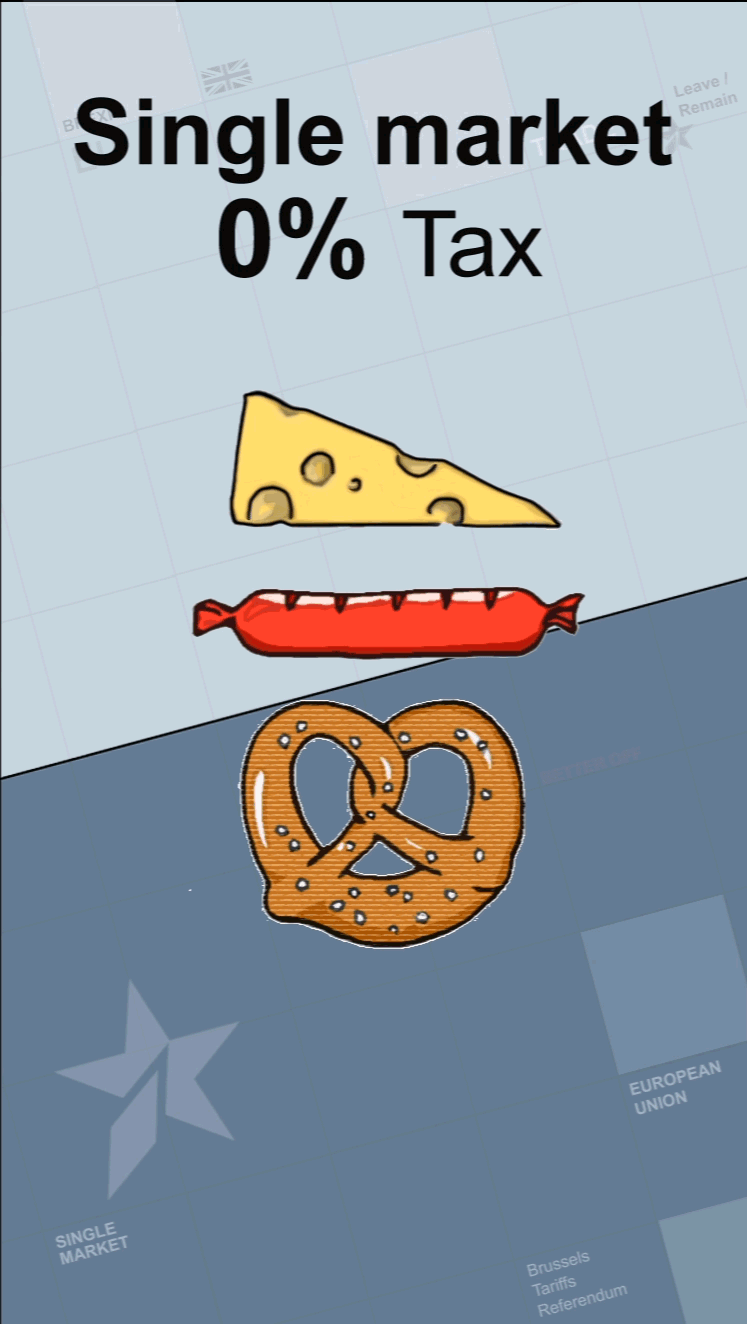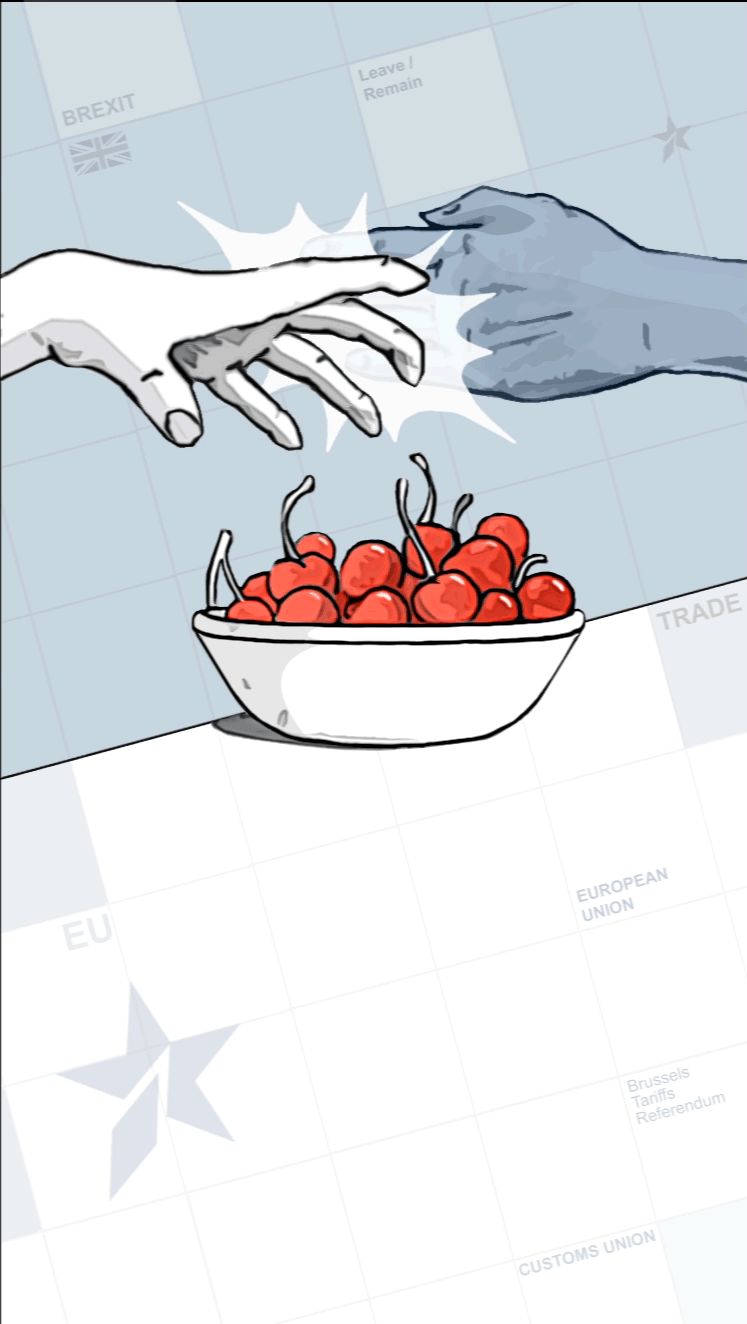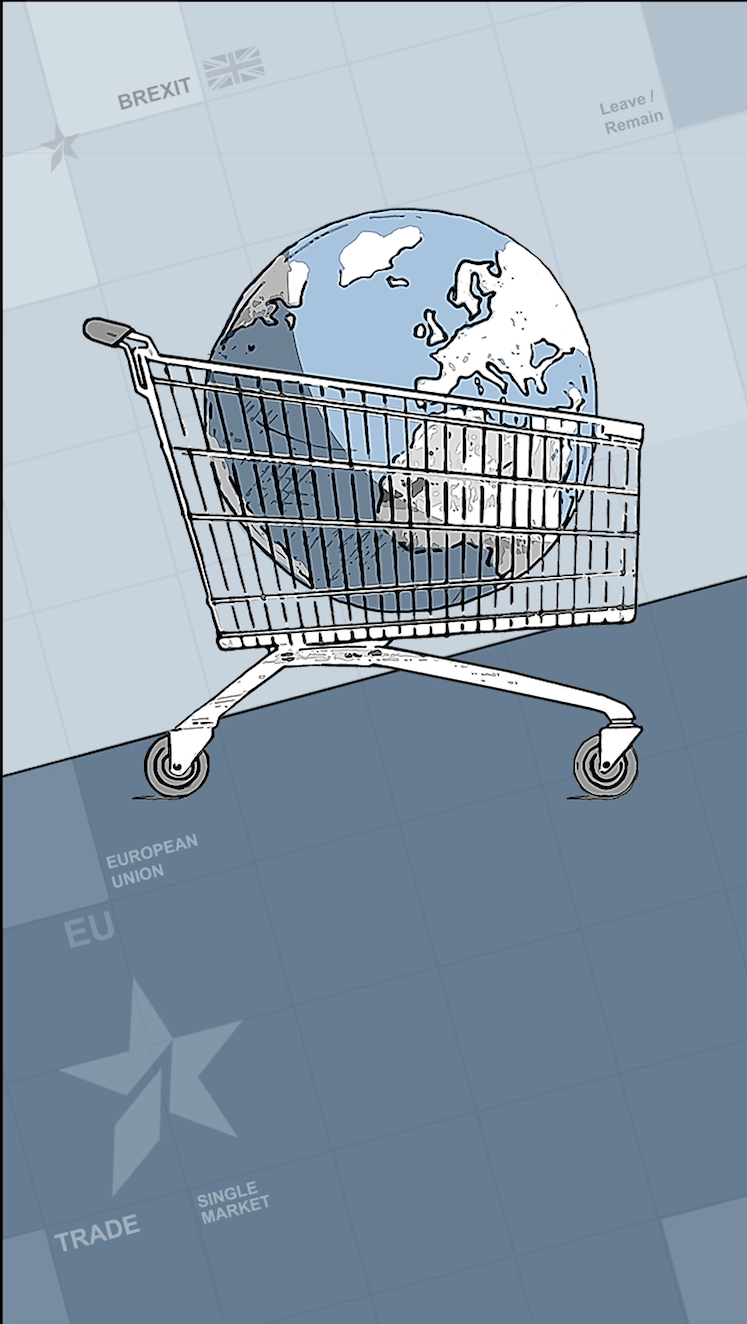Theresa May 'irritated' by leadership speculation
- Published
'It's not about my future but that of the UK', says May
Theresa May has said she gets "irritated" by the ongoing speculation over her position as prime minister.
In an interview to mark the six-month countdown to Brexit, Mrs May told the BBC the debate should be about the country's future rather than her own.
The prime minister's comments came days after Conservative MPs opposed to her Brexit plan met to discuss how and when they could force her to stand down.
The PM also criticised ex-foreign secretary Boris Johnson.
Mrs May said his language was "completely inappropriate" when he described her Brexit strategy as putting the UK in a "suicide vest".
The UK is due to leave the European Union on 29 March 2019, and the government's plan - agreed at Chequers in July - has sparked criticism from Brexiteer Tories as well as the EU.
About 50 Brexit-supporting members of the European Research Group (ERG) met on Tuesday to discuss a leadership challenge.
Theresa May hits back at Boris Johnson over Chequers plan
Asked if she would reassure the Tory party that she was not determined to go on and on, she told the BBC's Panorama programme: "I get a little bit irritated but this debate is not about my future. This debate is about the future of the people of the UK and the future of the United Kingdom.
"That's what I'm focused on and that's what we should all be focused on.
"It's ensuring that we get that good deal from the European Union which is good for people in the UK, wherever they live in the UK, that's what's important for us."
The prime minister also said the "bloody difficult woman" - a description of her by former Conservative chancellor Ken Clarke - was "still there".
But she added: "There's a difference between those who think you can only be bloody difficult in public, and those who think actually you bide your time, and you're bloody difficult when the time is right - and when it really matters."
Analysis by Chris Mason, political correspondent
After a week in which the prime minister was politically duffed up by one set of her MPs openly plotting to oust her, and by another set meeting in public to discuss how to derail her blueprint for Brexit, this is Theresa May's response.
A few things stood out for me; her willingness, again, to embrace what was meant to be an unflattering description of her - by Conservative colleague Ken Clarke - that she was a "bloody difficult woman", and laugh about it.
There was also her absolute insistence that her Brexit plan is the only one in town and she is sticking to it.
And finally the cold contempt, visible in her eyes, with which she addresses Boris Johnson's description of her Brexit blueprint as being akin to a "suicide vest" being placed around the country.
As part of the so-called Chequers plan, Mrs May said she wants to strike a trade deal with the EU for after the UK leaves in 2019.
She also said there needs to be "friction-free movement of goods" with no customs or regulatory checks between the UK and EU on the island of Ireland, in order to avoid a hard border there.
The UK and EU are hoping to agree a way forward next month, at the same time as they settle the terms of the UK's withdrawal, including a transition period up to the end of 2020.
Mrs May's proposals are unpopular with many Tory MPs, who argue it would compromise the UK's sovereignty.
Boris Johnson, who has been at odds with Mrs May's vision for Brexit for some time, claimed last week that she had "wrapped a suicide vest" around the British constitution and "handed the detonator" to Brussels.
Mrs May said: "I was home secretary for six years, and as prime minister for two years now I think using language like that was not right and it's not language I would have used."
Asked if the Chequers plan was permanent, Environment Secretary Michael Gove, another leading figure in the Leave campaign, said: "Yes, but there's one critical thing, a future prime minister could always choose to alter the relationship between Britain and the European Union.
"But the Chequers approach is the right one for now because we have got to make sure that we respect that vote and take advantage of the opportunities of being outside the European Union."
Mr Gove said the responsibility was now on the European Union "because we've shown flexibility".
It comes as London Mayor Sadiq Khan stepped up pressure on Labour leader Jeremy Corbyn to back a referendum on the final deal Mrs May strikes with Brussels.
The Labour leadership has said it will vote against Mrs May's deal if it does not do enough to protect workers' rights and the benefits of single market and customs union membership.
But Mr Corbyn has ruled out another referendum, which is backed by a trade unions and many of his MPs, saying he would prefer a general election instead.
Mr Khan - who has previously ruled out a second referendum - said he did not want a "re-run" of the 2016 vote.
He told Andrew Marr: "The Conservative Party already has rejected Chequers, the EU has already rejected Chequers, so we are in a situation where we could slide out of the EU with no deal.
"The sensible thing is for the prime minister to call a general election, that's my first option," he added. But failing that, a referendum on the outcome of negotiations would allow the British public to "take back control".
(If you can't see the explainer, follow this link)
BBC Panorama, Inside No 10: Deal or No Deal? is on Monday 17 September at 20:30 BST on BBC One as part of a week on in-depth coverage across the BBC to mark Brexit: Six Months to Go.




















